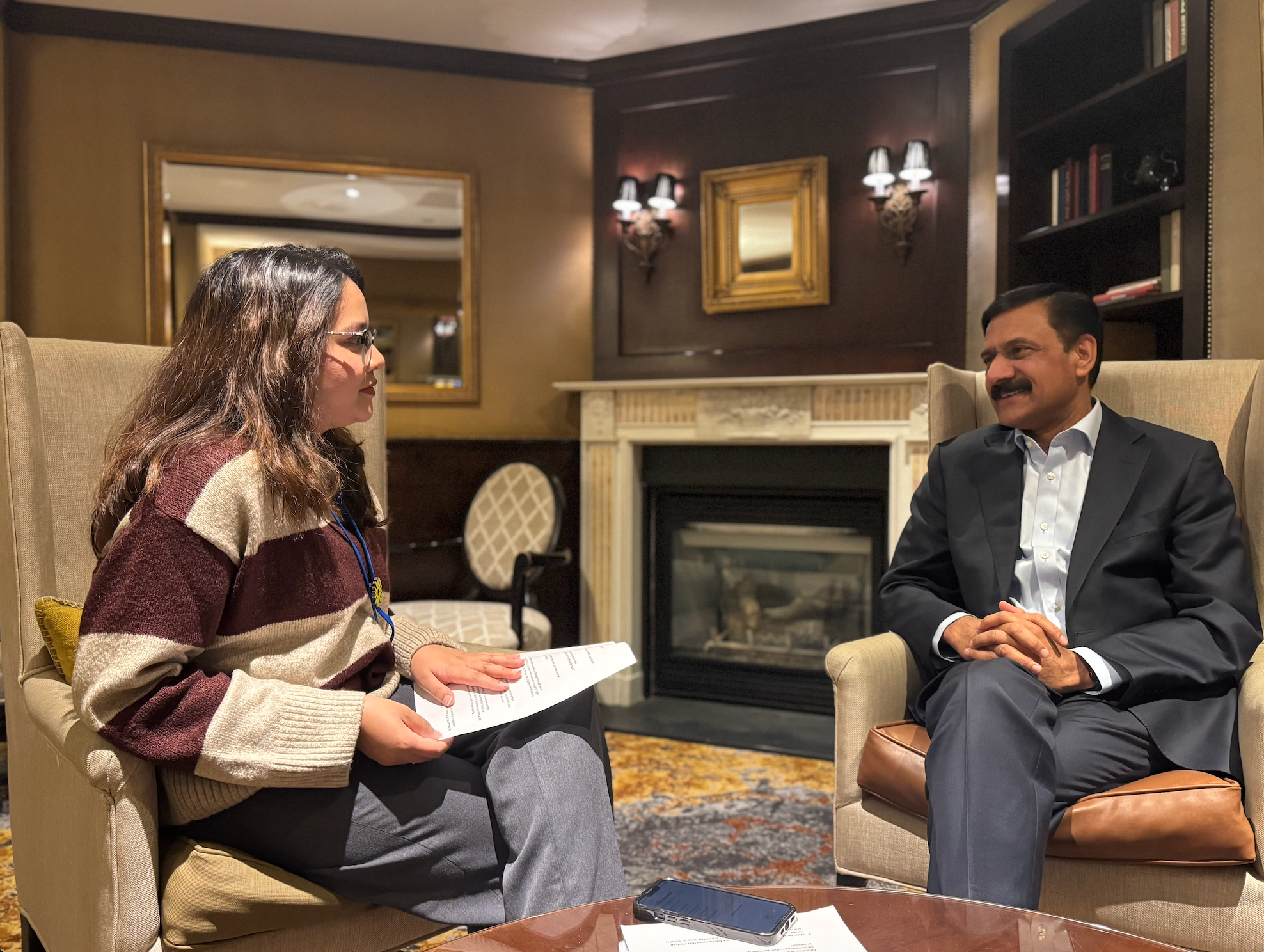
To achieve gender equality, all of us need to create change — Ziauddin Yousafzai is working to engage men and boys in this work.
The world knows Ziauddin for standing by his daughter in the face of Taliban violence. But I met him for the first time, almost two years ago. His role in his daughter’s life always reminded me of my own father, who always supported and fought for his daughters. When I met Ziauddin, it felt as if I were meeting a dear teacher, mentor, and strong supporter of the cause I hold dearly: gender equality. As co-founder of Malala Fund, he has fought to position girls’ right to education as a priority for everyone, not just girls and women.
Today, Ziauddin is embarking on a new chapter in his advocacy journey: promoting male allyship and healthy masculinity. We know systemic barriers and social norms prevent girls from accessing and completing education, but it’s less common to engage men and boys in advancing gender equality and highlighting their roles in dismantling structures that harm us.
Ziauddin was invited to partner with the documentary “To Kill a Tiger” and the associated impact campaign StandWithHer, including speaking about its themes at Harvard and the U.N.’s 69th Commission on the Status of Women. Through this work, Ziauddin highlighted the similarities between the film’s protagonists, Ranjit and Kiran, and himself and Malala. Both are fathers to daughters and have faced violence for standing up and supporting their daughter’s pursuit of rights and justice.
“I saw my story reflected in Kiran and Ranjit’s in a different frame against a different [type of] violence. This is the story of a family standing against the system of patriarchy and the social norms that harm girls,” Ziauddin says.
While allyship is top of mind for Ziauddin this year, girls remain at the centre. I sat down with Ziauddin to chat about male allyship, fatherhood and the launch of Malala Fund’s Girls’ Vision for Education report.
First, tell me: who is Ziauddin Yousafzai?
I'm a father and a teacher. I’m one of the few fathers in the world who is known by his daughter and I'm so proud of that.
What are you most excited to be working on this year?
I'm always excited about Malala Fund’s work. That is something very close to my heart from day one. I believe that education can transform everyone’s life, especially girls' lives. But this year is exciting because I will be working with men and boys around male allyship and healthier versions of masculinity.
When we talk about girls’ education and women’s empowerment, men — fathers, brothers, husbands and sons — can be one the first hurdles girls face, [but are] also a crucial enabler. When we think about removing the barriers that keep girls from learning, it’s important to understand [and] model positive masculinity, mentorship and working with boys and men to support girls and women. This is not just important for girls but for boys too.
It has taken so long for men to learn and to understand the importance of gender equality. It took centuries. Now we have voices, organisations like equimundo, MenEngage and so many others doing this work and urging men to revisit what masculinity — healthy masculinity — means.
Traditional definitions of masculinity celebrate authority and control. From images to daily conversation, everything is patriarchal in practice and language. We must revisit these things. When I talk about healthy masculinity, it’s not only a discussion or paradigm shift for women and girls. Men and boys want this for themselves too. Traditional masculinity, particularly when it comes to definitions of success, the pressure to be the breadwinner and carry the economic burden can isolate men and impact their mental health.
As an example, a brother with five sisters will have to leave his home and support his entire family and upholding the social norm that girls should not learn. That girls should be confined to the home and should be married as early as possible. He not only destroys his life, but he ruins the lives of his sisters. Gender equality needs men and men need gender equality.
Girls' priorities are often overlooked when it comes to policies that directly affect them. Malala Fund recently launched the Girls’ Vision for Education report as a way to put girls at the centre of transformative education. What do we stand to gain when we make space for girls in decision-making?
First of all, a big thank you to you, Meti and Tamilore for your leadership on this project. Inviting more than 800 girls from around the world to share their vision for education is something to be proud of. While I’m grateful for men who champion girls’ education, when it comes to their needs and standards for education, only girls can decide what kind of education they want.
This report highlights that girls want an education that makes them independent and empowered to take control of their lives. When governments engage girls in decision-making, girls can contribute to the economy, politics and their communities. Girls’ education [policy] should be influenced by and for girls. They have the vision and wisdom to share with everyone. When you give a girl a quality education — according to the vision of girls — they will change everything for themselves. They can move mountains.
This brings me back to the question that while we have girls’ insights and their input, how can men and boys become allies and speak out for girls’ rights?
To bring more men and boys into the ecosystem of gender equality, men must understand that gender equality does not only concern women. It’s impactful and prosperous for them if they support girls’ education and women’s rights.
My nephew was once critical of Malala’s activism and now he runs a school for 750 girls. He protects and advocates for girls’ education within his community. Because of his work to advocate for girls’ education in his community, he shows parents that education makes their daughters stronger. This change in people’s mentality towards girls’ education came from a person who once upon a time was not in favour of girls having equal access to education. For example, Ranjit (the father in “To Kill a Tiger”) is the kind of father all men should look up to. Brave fathers create brave daughters and brave daughters create even braver fathers.
